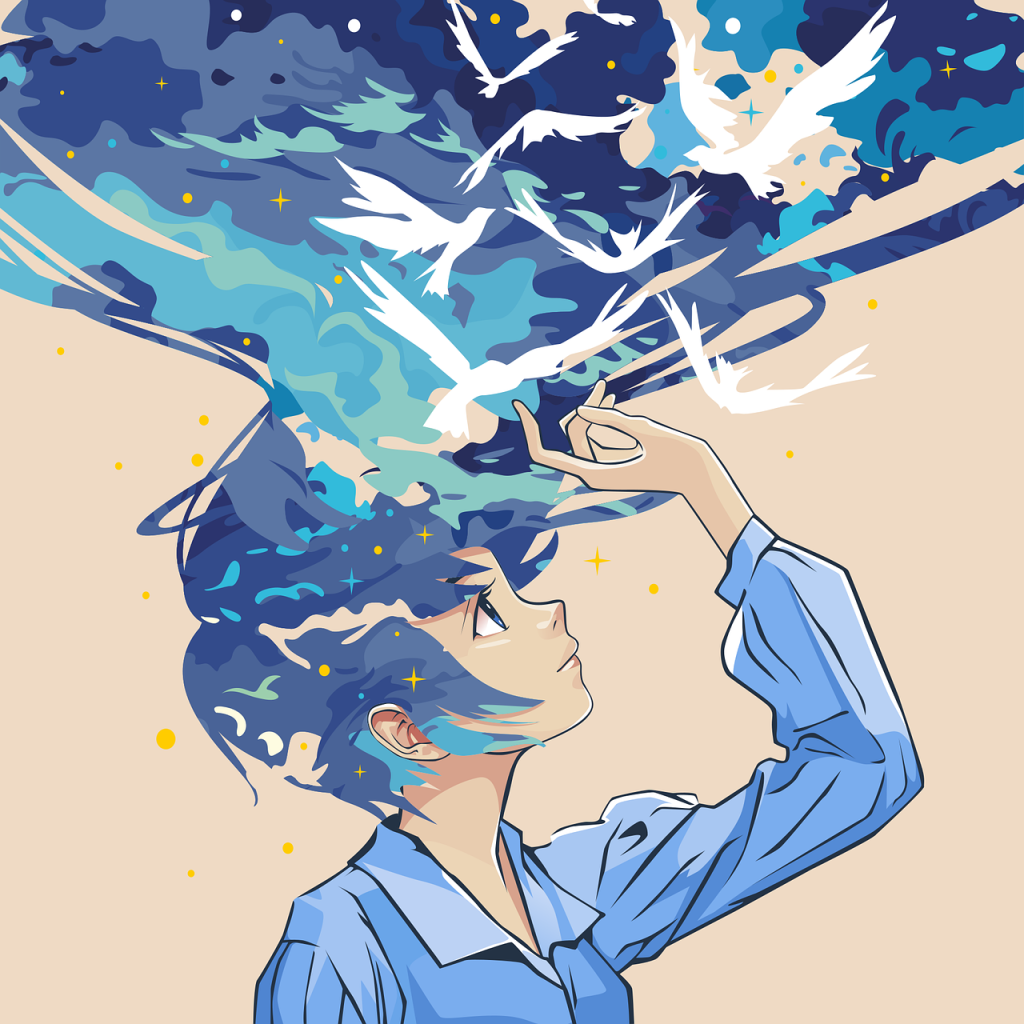You spend hours in imaginary conversations where you always say the perfect thing. Create elaborate scenarios where you’re the hero. Build entire relationships with people who barely know you exist. You’re not delusional. You’re human. And your fantasies are trying to serve a purpose.
If you’ve ever felt guilty about how much time you spend in your head or wondered if your fantasy life is “normal,” understanding why we fantasize reveals that escaping reality might be one of the most human things you do.
Fantasy as Mental Rehearsal
Fantasy isn’t just escape from life—it’s preparation for life. Your brain uses fantasy as a simulation program. Every imaginary conversation is practice. Every heroic scenario is confidence building. Every romantic fantasy is relationship rehearsal.
Evolutionarily, this makes sense. Our ancestors who could imagine hunting scenarios before the actual hunt likely survived better. Those who could fantasize about social interactions probably navigated group dynamics more successfully.
Research suggests that your brain can’t fully distinguish between vividly imagined experiences and real ones. When you fantasize about success, neural pathways strengthen as if you actually succeeded. This is why athletes use visualization and why therapy employs guided imagery.
Emotional Regulation in Disguise
Fantasy serves as emotional regulation. When reality overwhelms, fantasy provides a pressure release valve. Stuck in a powerless situation? Fantasy gives you control. Lonely? Fantasy provides connection. Afraid? Fantasy makes you brave.
Pay attention to what you fantasize about most—it often reveals what you lack or need. Power fantasies may indicate feeling powerless in real life. Romance fantasies might show intimacy hunger. Your fantasies can be diagnostic tools showing where you need attention or healing.
Fantasy allows safe emotional experience. You can feel rage without destroying relationships, experience love without vulnerability risk, practice confrontation without real conflict. It’s an emotional gymnasium where you can build psychological resilience.
Different Types Serve Different Functions
Power fantasies often compensate for feelings of powerlessness. You imagine telling off your boss because you can’t in reality, or becoming a hero because you feel ordinary.
Romantic fantasies aren’t just about loneliness—they’re about practicing idealized connection. Creating a perfect partner who understands completely and loves unconditionally lets you explore vulnerability in a safe space.
Catastrophic fantasies might seem negative but serve a purpose. Imagining worst-case scenarios is anxiety’s attempt at control—if you can imagine it, maybe you can prepare for it.
Nostalgic fantasies rewrite history. Conversations where you said the right thing, relationships that ended differently. This isn’t denial but integration—processing regret through reimagining.
When Fantasy Becomes Problematic
Fantasy becomes concerning when it replaces rather than supplements reality. Maladaptive daydreaming is a real condition where fantasy becomes compulsive—hours daily in alternate realities while real relationships are neglected.
The preference cascade happens gradually: fantasy feels better than reality, so you choose fantasy more often. Real-world skills may atrophy, making actual life harder to navigate, leading to further retreat into fantasy.
Obsessive romantic fantasies about real people can create problems when the fantasy relationship becomes more real than actual interactions. This can lead to disappointment when the real person doesn’t match the fantasy version.
The key is balance. Fantasy should enhance reality, not replace it—like seasoning, not the main course.
The Creative Connection
Fantasy is creativity’s birthplace. Every invention started as fantasy. Every artwork began in imagination. Every scientific breakthrough emerged from “what if?” thinking.
Children naturally fantasize constantly, then we’re often taught to “grow up” and “be realistic.” We may inadvertently train creativity out of people, then wonder why innovation stagnates.
Successful people often bridge fantasy and reality effectively—they imagine possibilities then work to create them. Fantasy becomes a blueprint rather than just an escape.
Healthy Integration
A healthy fantasy life requires conscious cultivation without shame. Research suggests the average person spends a significant portion of waking hours in some form of fantasy or mind-wandering.
Consider dedicating specific time for daydreaming. This might sound counterintuitive, but conscious fantasy can be healthier than compulsive escaping.
Look for ways to bridge fantasy to reality. What elements of your fantasies could exist in real life? If you fantasize about power, where can you claim more agency? If you crave connection, how can you build it?
Try documenting your fantasies through writing, drawing, or other creative outlets. This can transform mental energy into something tangible.
What Fantasies Reveal
Your fantasy life may reveal aspects of your authentic self. In fantasy, social programming often drops away, and you might become more like who you really are, want what you really want.
This is why fantasy can feel necessary—it’s where you exist without external constraints. Where different parts of yourself have a voice.
Reality needs fantasy to be bearable, and fantasy needs reality to have meaning. Neither is complete alone. Both are necessary for a full human experience.
The Bottom Line
Your fantasies aren’t necessarily escapes from life—they can be practice runs for it. They reveal what you need, what you value, and aspects of who you’re becoming.
Rather than fighting your fantasy life, consider listening to it. The imaginary worlds you create might contain insights about the real changes you want to make.
Fantasy isn’t weakness—it’s a distinctly human capacity for imagination that can serve creativity, emotional regulation, and personal growth when used consciously and balanced with engagement in reality.
Dream consciously, but also act on what those dreams reveal about your authentic desires and needs.
